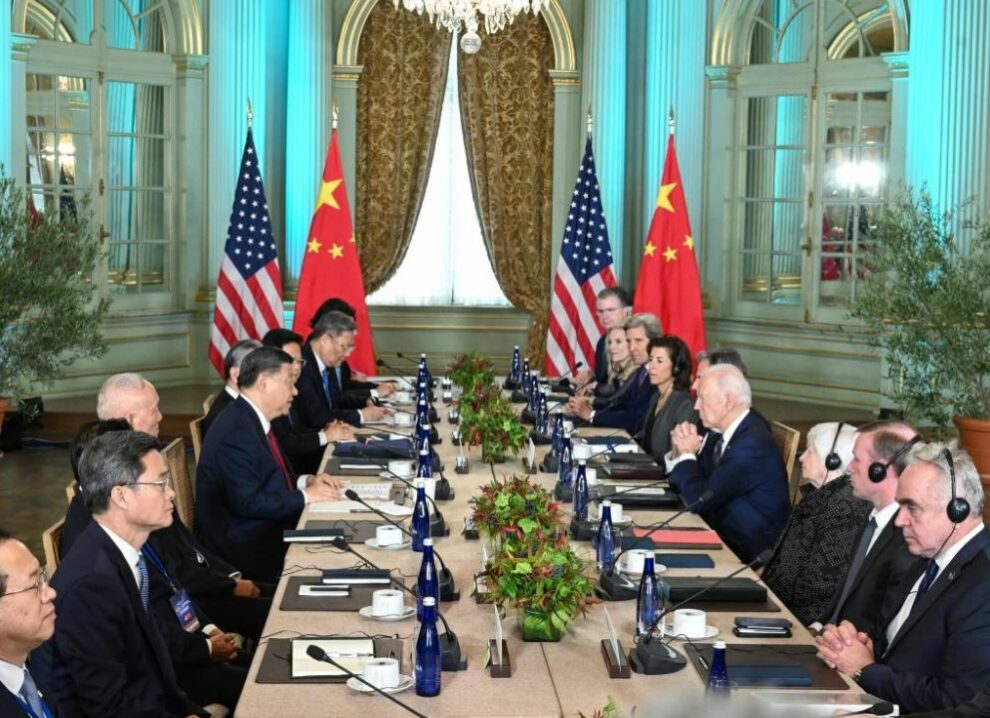China hopes the U.S. side will honor its promise of not seeking a new Cold War or conflict with China, and work together with China to bring bilateral relations back to the track of sound and stable development, a Chinese foreign ministry spokesperson said on Monday.
Spokesperson Mao Ning made the remarks in response to a query relevant to the upcoming China-U.S. summit meeting.
According to media reports, an anonymous White House official on Nov. 10 said the goals of the summit meeting were about “managing the competition, preventing the downside risk of conflict and ensuring channels of communication are open,” when briefing the media on the upcoming meeting.
“China has already released information on President Xi Jinping’s visit to the United States for the China-U.S. summit meeting at invitation,” Mao said, adding that the two presidents will have in-depth communication on issues of strategic, overarching and fundamental importance in shaping China-U.S. relations and major issues concerning world peace and development.
Mao said China always follows the guiding principles of mutual respect, peaceful coexistence, and win-win cooperation proposed by President Xi when viewing and dealing with relations with the United States. Major country competition is not in line with the trend of the times and cannot solve the problems of the United States or global challenges.
“China is not afraid of competition, but we are opposed to defining China-U.S. relations by competition,” said Mao.
The U.S. side should earnestly respect China’s reasonable concerns and legitimate development rights, instead of only emphasizing its own concerns and undermining China’s interests, Mao added.
“The attempt to shape other countries according to its own will and model is wishful thinking from the very beginning, which is typical hegemonism and will not succeed,” she said.
China does not seek to change the United States, and the United States should not seek to shape or change China either, Mao added.
Mao stressed that the Taiwan question is China’s internal affair, and resolving the Taiwan question is a matter for the Chinese themselves and brooks no external interference.
“Successive U.S. administrations have made clear commitments on the Taiwan question,” Mao said, adding that during the Bali meeting, the U.S. side made it clear that the U.S. government does not support “Taiwan independence.” The U.S. side should earnestly abide by the one-China principle and take concrete actions to oppose “Taiwan independence.”
Over the South China Sea issue, China is committed to resolving any disputes with relevant countries through negotiation and consultation. At the same time, China’s resolve to safeguard national sovereignty and territorial integrity is unwavering, Mao said.
The U.S. side should stop making excuses to intervene in disputes over territory and maritime rights and interests between China and relevant countries, still less should it use relevant issues to contain China, said Mao.
Noting the world is paying close attention to the Palestinian-Israeli conflict, Mao said China always stands on the side of fairness and justice, stays in close communication with relevant parties, and is committed to de-escalating the situation and protecting civilians.
“We hope that the United States will uphold an objective and just position and play a constructive role in promoting an early ceasefire,” said Mao.










